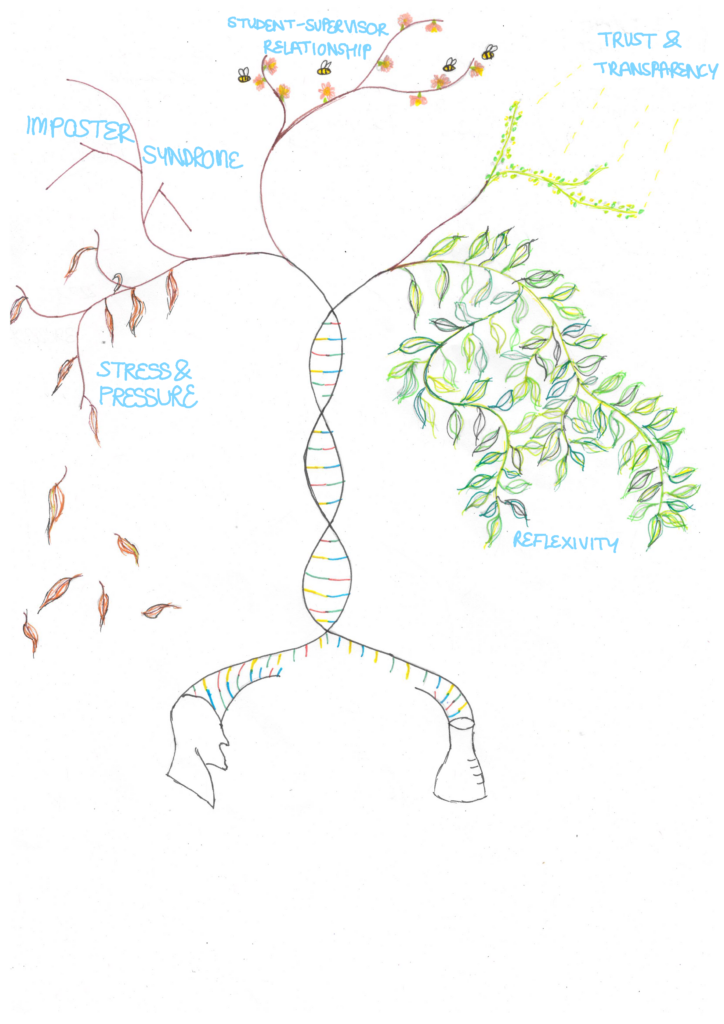Over the last couple of years Dr Jenny Tullet, SoCoBio DTP Wellbeing Lead together with Dr Emma Hargreaves and Dr Jennifer Leigh have been collaborating on a new project to support post graduate mental health and wellbeing in the Biosciences as part of the South Coast Biosciences Doctoral Training Partnership (SoCoBio DTP). This week their work has been published in the scientific journal eLife. This wellbeing project was piloted with SoCoBio students across the DTP partners and the students who participated are all authors on the manuscript.
The title of our work is “Research Culture: Using reflective practice to support PhD students in the biosciences” and can be found here https://elifesciences.org/articles/92365.
In summary:
We have known for a long time that post-graduate study is intensely challenging mentally, physically, and emotionally. Levels of anxiety and depression in post-graduate students are far above those in the general population. In particular, students who experience significant work-related or personal challenges, or who are marginalised due to gender, race, sexuality, disability, being a first generation, or international student are likely to feel isolated and drop out. Our paper reports a novel “Reflexivity in Research” programme, specifically for Bioscience PhD students, that we have developed and piloted under the umbrella of a UK government funded BBSRC Doctoral Training Partnership. This program embeds reflective practices, not traditionally used in STEM subjects, to encourage post-graduates to learn from real life experiences by reflecting on their professional identity and inter-personal relationships using creative and reflective approaches. These are valuable tools to help navigate work environments, deal with difficult supervisory or professional relationships, and the complexities of modern or personal lives.
Our “Reflexivity in Research” programme identified themes that post-graduates find particularly challenging e.g. the challenges of the student-supervisor relationship; dealing with imposter syndrome and maintaining authenticity; and building trust and transparency in professional networks. Thus, it offers a new way of understanding the needs of our post-graduate students and offers knowledge-based ways for post-graduate training partnerships to tailor support allowing them to effectively nurture our next generation of Bioscientists. Our vision is to embed Reflexivity in Research into post-graduate research programmes both nationally and internationally to improve the general wellbeing of post-graduate students.
Students involved in the publication: Brandon Coke, David Fisher, Johanna Haszczyn, Steven Houghton, Johanna Fish, Laura Freeman, Isabella Garcia and Stefan Penman.

